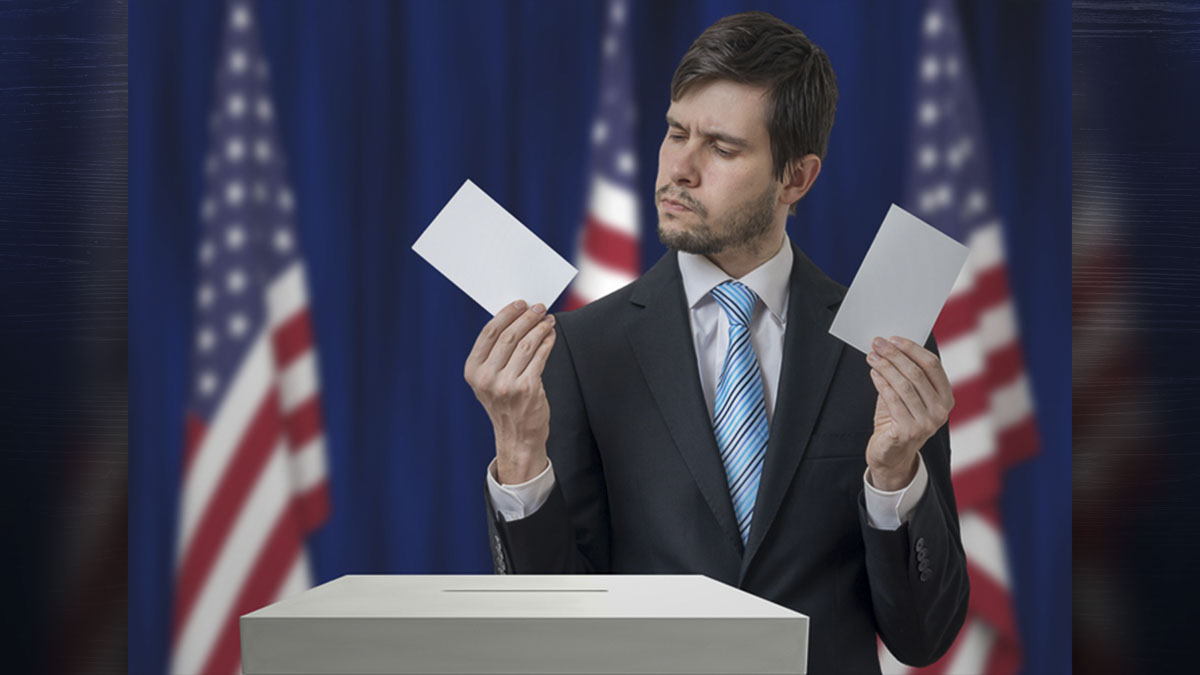
Elizabeth New (Hovde) believes how ballot titles are drafted and finalized is in serious need of government reform
Elizabeth New (Hovde)
Washington Policy Center
Here’s a KIRO 7 News headline from Nov. 6, the day after the recent election: “‘Confusing verbiage’ may have influenced WA voters on statewide initiatives, expert says.” Ya think?

You didn’t need an expert to tell you that. Read the titles for yourself. Those of us paying attention to 2024 ballot measures for months have been worried all along that voters would not know how to say what they mean and mean what they say given crafty and bloated wording from the state attorney general’s office. Thanks, Bob.
Last August, I wrote an article for Washington Policy Center titled, “Ballot language might confuse the issue of making WA Cares optional.” In it, I said the passage of I-2124 was a big unknown.
On one hand, voters already asked lawmakers to do away with WA Cares once before in a 2019 advisory vote. This year’s measure asked voters to make the program optional. In 2020, voters also said no to allowing the Washington state Legislature to invest into stocks or other investment methods for the eventual WA Cares fund with Washington State Joint Resolution 8212. That again indicated disapproval of the WA Cares idea. When people could opt out of WA Cares, so many people wanted out of the coming state program that it temporarily shut down sales of long-term-care insurance here. Still, nearly 500,000 people left the program. More wanted out. Many others didn’t even know they could try and get out.
When people understand there isn’t a guaranteed benefit to workers after years of their monetary investment, they don’t want to be forced to pay another 58 cents of every $100 they earn to the state.
On the other hand, a confusing ballot title, coupled with years of misleading state marketing about WA Cares and a load of money spent on the “Vote No on 2124” campaign, was going to make the initiative’s passage super difficult. The “no” side far outspent the “yes” side, by the way, raising $13.3 million to combat 2124 by the end of October. Most of that money came from Service Employees International Union 775. The union stands to benefit from the WA Cares program being mandatory.
The Oct. 29 Washington State Standard says that SEIU 775 was actually “by far” the largest donor for the whole election cycle. “To date, the union and its various branches have spent nearly $18 million this year.”
SEIU was successful. Participation in WA Cares and its payroll tax will continue to be mandatory. The state will keep taking money from workers, including low-income ones, for a benefit many workers will never need or be eligible to receive. Some will need long-term care and be eligible. Those people could eventually receive up to $36,500 to spend on services the state has approved.
Back to ballot confusion: The I-2124 ask could have said, “Initiative Measure No. 2124 concerns the state’s long-term-care program, WA Cares. This measure would make participation in the program and its payroll tax optional instead of mandatory. Should this measure be enacted into law?”
Instead, voters got this: “Initiative Measure No. 2124 concerns the state’s long-term care insurance. This measure would provide that employees and self-employed people must elect to keep coverage under RCW 50B.04 and could opt out at any time. It would also repeal a law governing an exemption for employees. This measure would decrease funding for Washington’s public insurance program providing long-term benefits and services. Should this measure be enacted into law?”
The above ballot language included a 15-word disclosure of the measure’s impact on the state budget, required by legislation passed in 2022 by the Democrat-majority legislature. This year’s election was the first time such statements were on ballots along with the ballot titles.
In the explanatory statement in the voter’s pamphlet, also supplied by the Office of the Attorney General, the plot of confusion thickened and double-downed. It said, “I-2124 would also repeal the statute that created a voluntary exemption for employees who had purchased long-term-care insurance before November 2021.”
I received many inquiries from people who wanted WA Cares to be optional who didn’t know which way to vote, “yes” or “no.” (The answer was “yes.”) I saw several people write statements such as, “Vote no on this initiative to make WA Cares optional!” Sigh. A source I talked with who works with long-term-care insurers told me that people who had already opted out of WA Cares weren’t sure if this meant they would lose their exemption.
Christopher Adolph, a political science professor at the University of Washington, told KIRO 7 News of the 2124 confusion that the ballot title would be very easy to read and think, “I don’t know whether this ropes me into WA cares or pushes me out.” He said some of the wording in I-2124 was vague and included double negatives.
Adolph also added, “When people are uncertain about a referendum, research has suggested they often lead to voting no as a result,” he said.
This we know. So does the attorney general.
Ballot verbiage influences how people vote. The attorney general put the measure on an unfair playing field, and the ballot language surrounding I-2124 was confusing. Was it responsible for the initiative’s 11-percentage-point loss? I don’t know.
Exit polling about confusion with ballot language would have been useful. (I have not seen any such polling and don’t think it existed.) Widespread media coverage about the potential for ballot confusion and misunderstanding before people voted also would have been useful to voters.
How ballot titles are drafted and finalized is in serious need of government reform.
Elizabeth New (Hovde) is a policy analyst and the director of the Centers for Health Care and Worker Rights at the Washington Policy Center. She is a Clark County resident.
Also read:
- WA governor pressed to veto $1.8B piece of Democrats’ tax billGrocers and restaurateurs are urging Gov. Ferguson to veto a surcharge in HB 2081 that they say will raise food prices statewide.
- Letter: ‘It’s said sarcasm is the lowest form of wit’Amboy resident Thomas Schenk criticizes Olympia’s use of “emergency clauses” and other legislative tactics that limit public participation.
- Opinion: What the 2025 legislature tells us about why Washington’s government keeps failingTodd Myers of the Washington Policy Center argues that Washington’s government fails because it resists humility, experimentation, and accountability in its policymaking.
- Town hall: Republicans say they are the ones fighting for the working classFour Republican legislators gathered in Battle Ground for a town hall to address rising taxes, education concerns, and their push to support Washington’s working class.
- Pooneh Gray Files for Vancouver City CouncilPooneh Gray has filed to run for Position #1 on the Vancouver City Council, emphasizing public safety, homelessness solutions, and community justice.











Absolutely
Very well-done article, Elisabeth. Thank you.